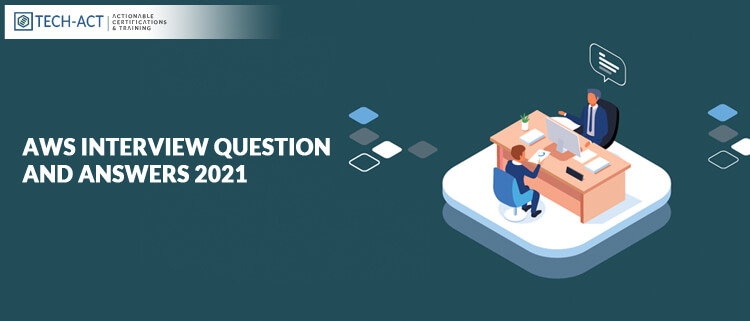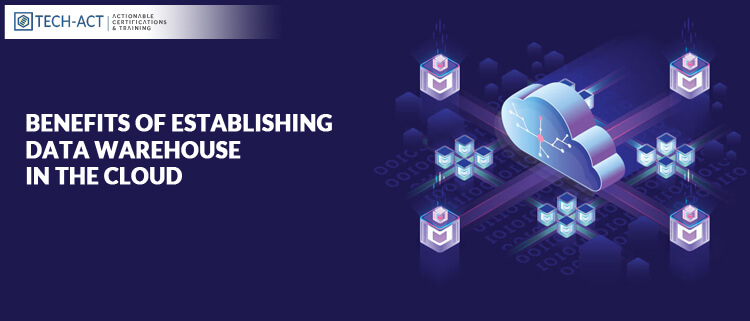AWS VS AZURE VS GOOGLE CLOUD
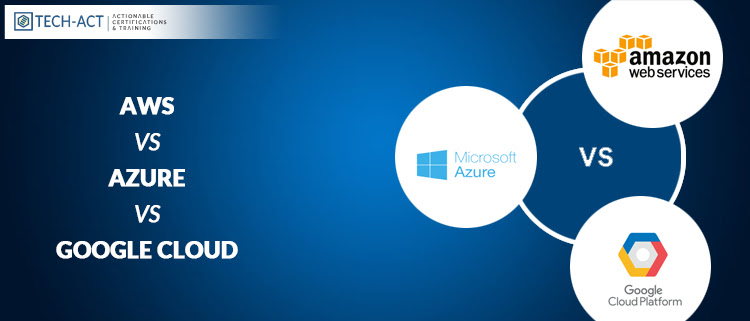
A very cut-throat competition is going on between Amazon Web services, Microsoft Azure & Google cloud platform, for securing the dominant position in the world of public cloud computing.
These three cloud companies have not only successfully secured top positions in the mind of the customers but they also have a hold when it comes to infrastructure as a service (laaS) and platform as a service (PaaS) market.
Currently the market leader is AWS, followed by Microsoft. Though, Microsoft is potent in SaaS but Google cloud has its strength in artificial intelligence and it has shown a tremendous growth as the AI market has witnessed growth. Google cloud is also known for offering good discounts.
Below are the topics we’ll discuss in this article,
Let’s take a quick glance on the summary of cloud comparison between AWS vs Azure vs Google cloud,
Amazon Web Services
- It has a huge number of tool set which always continues to grow rapidly. Therefore, without any doubt we can state that its potential is beyond our imagination.
- However, its cost structure maintains bit of ambiguity and its singular emphasis on public cloud rather than hybrid cloud or private cloud means that AWS primary aim is not to interoperate with your data.
Microsoft Azure
- The one who gives a tough competition to AWS and has phenomenal cloud infrastructure is Microsoft Azure.
- Are you an enterprise customer? Then, Azure speaks your language as very few companies have the enterprise background (and Windows support) as Microsoft.
- Azure will come to know that you run a data center it will work harder to interoperate with data centers.
- Its main power is hybrid cloud.
Google Cloud
- Though Google entered market at a very later stage & it also doesn’t have enterprise focus for attracting corporate customers still what makes it keep going stronger is its exceptional technical expertise, its industry-leading tools in deep learning, artificial intelligence ,machine learning and data analytics and the cherry on the cake is that it is very well funded.
|
AWS vs Azure vs Google Cloud |
||
| Vendor | Strengths | Weaknesses |
| AWS |
|
|
| Microsoft Azure |
|
|
| Google Cloud |
|
|
AWS Vs Azure Vs Google Cloud: Compute Services
AWS Compute Services
- AWS Elastic Compute Cloud (EC2):
-
- Elastic Compute Cloud or EC2 is Amazon’s flagship compute service. Amazon has explained EC2 as “a web service that provides secure, resizable compute capacity in the cloud.”
- It provides numerous options which also include huge assortment of instances, support for both Windows and Linux, bare metal instances, GPU instances, high-performance computing, auto scaling and more.
- AWS also offers best deals like a free tier for EC2 that includes 750 hours per month for up to twelve months.
- AWS Container services:
-
- Amazon’s different types of container services are getting popular when it comes to compute category.
- It provides options that support Docker, Kubernetes, and its own Fargate service that automates server and cluster management when using containers.
- It also offers a virtual private cloud.
Azure Compute Services
- Virtual Machines:
-
- The primary cloud-based compute service in Mircosoft Azure is known as Virtual Machines.
- It boasts support for Linux, Windows Server, SQL Server, Oracle, IBM, and SAP, as well as enhanced security, hybrid cloud capabilities and integrated support for Microsoft software.
- It has a huge catalog of available instances, including GPU and high-performance computing options, as well as instances optimized for artificial intelligence and machine learning.
- It also has a free tier with 750 hours per month of Windows or Linux B1S virtual machines for a year.
- Azure Additional Services:
-
- Azure’s version of Auto Scaling is known as Virtual Machine Scale Sets.
- Azure has two container services i.e., Azure Container Service which is based on Kubernetes, and Container Services makes use of Docker Hub and Azure Container Registry for management.
- It has a Batch service, and Cloud Services for scalable Web applications which is similar to AWS Elastic Beanstalk
- It has a distinctive offering called Service Fabric that is specifically designed for applications with micro services architecture.
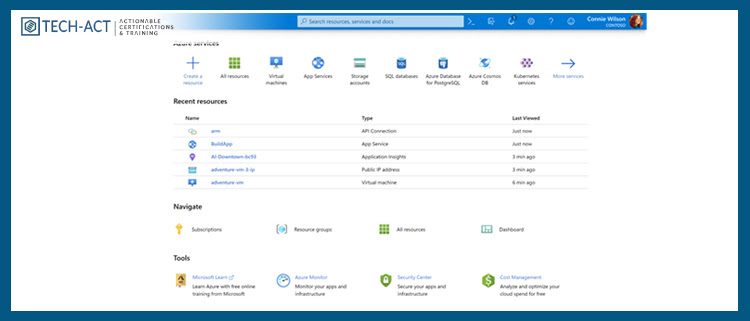
Google Compute Services:
- Google Compute Engine:
-
- If we compare then Google’s catalog of compute services is shorter than its competitors’
- Its primary service is called Compute Engine, which boasts both custom and predefined machine types, per-second billing, Linux and Windows support, automatic discounts and carbon-neutral infrastructure that uses half the energy of typical data centers.
- It offers a free tier that includes one f1-micro instance per month for up to 12 months.
- Emphasis on Kubernetes:
-
- It’s well established to provide containers and microservices.
- It offers the Kubernetes Engine for businesses who are interested in deploying containers. And don’t dare to miss this that Google has been extensively involved in the Kubernetes project which makes its root stronger in this area.
AWS Vs Azure Vs Google Cloud: Storage
AWS Storage:
- SSS to EFS:
-
- Simple Storage Service (S3) for object storage, Elastic Block Storage (EBS) for persistent block storage for use with EC2, and Elastic File System (EFS) for file storage, these are the kinds of services provided by AWS storage.
- There are more innovative storage products like the Storage Gateway, which enables a hybrid storage environment, and Snowball.
- Hybrid storage environment & snowball is physical hardware device which are used by organizations for transferring petabytes of data in cases where Internet transfer isn’t practical.
- Database and archiving Amazon has a SQL-compatible database called Aurora, Relational Database Service (RDS), DynamoDB NoSQL database, ElastiCache in-memory data store, Redshift data warehouse, Neptune graph database and a Database Migration Service.
- Amazon offers Glacier, which is designed for long-term archival storage at very low rates.
- In addition, its Storage Gateway can be used to easily set up backup and archive processes.
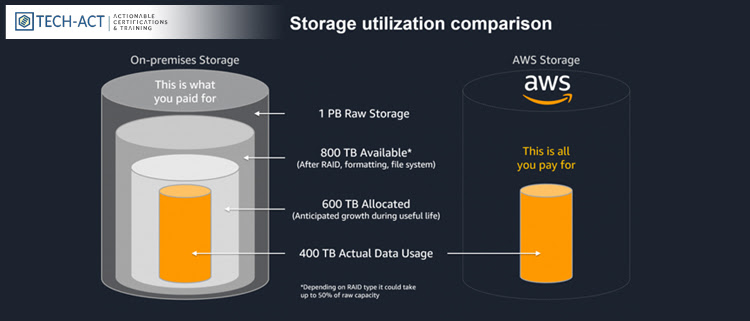
Azure Storage:
- Azure Storage Services:
- Blob Storage for REST-based object storage of unstructured data, Queue Storage for large-volume workloads, File Storage and Disk Storage these all services are available in Microsoft Azure’s basic storage services.
- It also offers a Data Lake Store which is vital for big data applications.
- Extensive Database:
-
- Azure’s database options are huge. It has three SQL-based options: SQL Database, Database for MySQL and Database for PostgreSQL.
- It also has a Data Warehouse service, as well as Cosmos DB and Table Storage for NoSQL.
- Redis Cache is its in-memory service and the Server Stretch Database is its hybrid storage service are made particularly for businesses that use Microsoft SQL Server in their own data centers.
- Unlike AWS, Microsoft does offer an actual Backup service, as well as Site Recovery service and Archive Storage.
Google Cloud Storage:
- Unified Storage and more:
-
- GCP has a list of storage services which keeps increasing. Cloud Storage is its unified object storage service, and it also has a Persistent Disk option.
- It provides a Transfer Appliance similar to AWS Snowball, as well as online transfer services.
- When it comes to databases, GCP has the SQL-based Cloud SQL and a relational database called Cloud Spanner that is designed for mission-critical workloads.
- It also has two NoSQL options: Cloud Bigtable and Cloud Datastore. It does not have backup and archive services.
AWS Vs. Azure Vs. Google Cloud: Pricing
One of the biggest challenges is to understand the pricing among these three cloud leaders as the pricing are not constant.
Prices can also change depending upon the particular arrangement that a customer can wrangle from their service representative. So, keep your eyes and ears open!
AWS Pricing
- Amazon’s pricing can be termed mysterious and why I say so? Because though it offers a cost calculator, the numerous variables involved make it difficult to get accurate estimates.
Azure Pricing
- In case of Microsoft Azure also things aren’t that easy. Because of Microsoft’s complicated software licensing options and use of situation-based discounts, its pricing structure is complex to understand without outside help and/or considerable experience.
Google Cloud Pricing
- Its primary focus is to offer a “customer-friendly” price which has the potential to beat the list prices of the competitors.
Conclusion
Today, without any doubt I can say that AWS is the market leader in this cloud business but Azure and GCP are also working very hard to beat AWS. But one thing is good i.e. this race will eventually make cloud services better which will ultimately benefit the customers.
A very cut-throat competition is going on between Amazon Web services, Microsoft Azure & Google cloud platform, for securing the dominant position in the world of public cloud computing.
These three cloud companies have not only successfully secured top positions in the mind of the customers but they also have a hold when it comes to infrastructure as a service (laaS) and platform as a service (PaaS) market.
Currently the market leader is AWS, followed by Microsoft. Though, Microsoft is potent in SaaS but Google cloud has its strength in artificial intelligence and it has shown a tremendous growth as the AI market has witnessed growth. Google cloud is also known for offering good discounts.
Below are the topics we’ll discuss in this article,
Let’s take a quick glance on the summary of cloud comparison between AWS vs Azure vs Google cloud,
Amazon Web Services
- It has a huge number of tool set which always continues to grow rapidly. Therefore, without any doubt we can state that its potential is beyond our imagination.
- However, its cost structure maintains bit of ambiguity and its singular emphasis on public cloud rather than hybrid cloud or private cloud means that AWS primary aim is not to interoperate with your data.
Microsoft Azure
- The one who gives a tough competition to AWS and has phenomenal cloud infrastructure is Microsoft Azure.
- Are you an enterprise customer? Then, Azure speaks your language as very few companies have the enterprise background (and Windows support) as Microsoft.
- Azure will come to know that you run a data center it will work harder to interoperate with data centers.
- Its main power is hybrid cloud.
Google Cloud
- Though Google entered market at a very later stage & it also doesn’t have enterprise focus for attracting corporate customers still what makes it keep going stronger is its exceptional technical expertise, its industry-leading tools in deep learning, artificial intelligence ,machine learning and data analytics and the cherry on the cake is that it is very well funded.
|
AWS vs Azure vs Google Cloud |
||
| Vendor | Strengths | Weaknesses |
| AWS |
|
|
| Microsoft Azure |
|
|
| Google Cloud |
|
|
AWS Vs Azure Vs Google Cloud: Compute Services
AWS Compute Services
- AWS Elastic Compute Cloud (EC2):
-
- Elastic Compute Cloud or EC2 is Amazon’s flagship compute service. Amazon has explained EC2 as “a web service that provides secure, resizable compute capacity in the cloud.”
- It provides numerous options which also include huge assortment of instances, support for both Windows and Linux, bare metal instances, GPU instances, high-performance computing, auto scaling and more.
- AWS also offers best deals like a free tier for EC2 that includes 750 hours per month for up to twelve months.
- AWS Container services:
-
- Amazon’s different types of container services are getting popular when it comes to compute category.
- It provides options that support Docker, Kubernetes, and its own Fargate service that automates server and cluster management when using containers.
- It also offers a virtual private cloud.
Azure Compute Services
- Virtual Machines:
-
- The primary cloud-based compute service in Mircosoft Azure is known as Virtual Machines.
- It boasts support for Linux, Windows Server, SQL Server, Oracle, IBM, and SAP, as well as enhanced security, hybrid cloud capabilities and integrated support for Microsoft software.
- It has a huge catalog of available instances, including GPU and high-performance computing options, as well as instances optimized for artificial intelligence and machine learning.
- It also has a free tier with 750 hours per month of Windows or Linux B1S virtual machines for a year.
- Azure Additional Services:
-
- Azure’s version of Auto Scaling is known as Virtual Machine Scale Sets.
- Azure has two container services i.e., Azure Container Service which is based on Kubernetes, and Container Services makes use of Docker Hub and Azure Container Registry for management.
- It has a Batch service, and Cloud Services for scalable Web applications which is similar to AWS Elastic Beanstalk
- It has a distinctive offering called Service Fabric that is specifically designed for applications with micro services architecture.

Google Compute Services:
- Google Compute Engine:
-
- If we compare then Google’s catalog of compute services is shorter than its competitors’
- Its primary service is called Compute Engine, which boasts both custom and predefined machine types, per-second billing, Linux and Windows support, automatic discounts and carbon-neutral infrastructure that uses half the energy of typical data centers.
- It offers a free tier that includes one f1-micro instance per month for up to 12 months.
- Emphasis on Kubernetes:
-
- It’s well established to provide containers and microservices.
- It offers the Kubernetes Engine for businesses who are interested in deploying containers. And don’t dare to miss this that Google has been extensively involved in the Kubernetes project which makes its root stronger in this area.
AWS Vs Azure Vs Google Cloud: Storage
AWS Storage:
- SSS to EFS:
-
- Simple Storage Service (S3) for object storage, Elastic Block Storage (EBS) for persistent block storage for use with EC2, and Elastic File System (EFS) for file storage, these are the kinds of services provided by AWS storage.
- There are more innovative storage products like the Storage Gateway, which enables a hybrid storage environment, and Snowball.
- Hybrid storage environment & snowball is physical hardware device which are used by organizations for transferring petabytes of data in cases where Internet transfer isn’t practical.
- Database and archiving Amazon has a SQL-compatible database called Aurora, Relational Database Service (RDS), DynamoDB NoSQL database, ElastiCache in-memory data store, Redshift data warehouse, Neptune graph database and a Database Migration Service.
- Amazon offers Glacier, which is designed for long-term archival storage at very low rates.
- In addition, its Storage Gateway can be used to easily set up backup and archive processes.

Azure Storage:
- Azure Storage Services:
- Blob Storage for REST-based object storage of unstructured data, Queue Storage for large-volume workloads, File Storage and Disk Storage these all services are available in Microsoft Azure’s basic storage services.
- It also offers a Data Lake Store which is vital for big data applications.
- Extensive Database:
-
- Azure’s database options are huge. It has three SQL-based options: SQL Database, Database for MySQL and Database for PostgreSQL.
- It also has a Data Warehouse service, as well as Cosmos DB and Table Storage for NoSQL.
- Redis Cache is its in-memory service and the Server Stretch Database is its hybrid storage service are made particularly for businesses that use Microsoft SQL Server in their own data centers.
- Unlike AWS, Microsoft does offer an actual Backup service, as well as Site Recovery service and Archive Storage.
Google Cloud Storage:
- Unified Storage and more:
-
- GCP has a list of storage services which keeps increasing. Cloud Storage is its unified object storage service, and it also has a Persistent Disk option.
- It provides a Transfer Appliance similar to AWS Snowball, as well as online transfer services.
- When it comes to databases, GCP has the SQL-based Cloud SQL and a relational database called Cloud Spanner that is designed for mission-critical workloads.
- It also has two NoSQL options: Cloud Bigtable and Cloud Datastore. It does not have backup and archive services.
AWS Vs. Azure Vs. Google Cloud: Pricing
One of the biggest challenges is to understand the pricing among these three cloud leaders as the pricing are not constant.
Prices can also change depending upon the particular arrangement that a customer can wrangle from their service representative. So, keep your eyes and ears open!
AWS Pricing
- Amazon’s pricing can be termed mysterious and why I say so? Because though it offers a cost calculator, the numerous variables involved make it difficult to get accurate estimates.
Azure Pricing
- In case of Microsoft Azure also things aren’t that easy. Because of Microsoft’s complicated software licensing options and use of situation-based discounts, its pricing structure is complex to understand without outside help and/or considerable experience.
Google Cloud Pricing
- Its primary focus is to offer a “customer-friendly” price which has the potential to beat the list prices of the competitors.
Conclusion
Today, without any doubt I can say that AWS is the market leader in this cloud business but Azure and GCP are also working very hard to beat AWS. But one thing is good i.e. this race will eventually make cloud services better which will ultimately benefit the customers.



